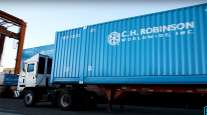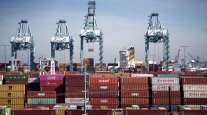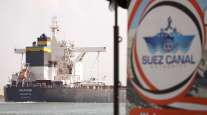Senior Reporter
Two California Ports Get Millions to Reduce Air Pollution

The California Air Resources Board is awarding two grants topping $90 million to the nation’s two busiest ports — Port of Los Angeles and Port of Long Beach, respectively — to develop a Zero Emission and Near Zero-Emission Freight Facilities project.
The Port of Los Angeles, along with Kenworth Truck Co. and Toyota Motor Corp., will develop 10 new hydrogen fuel-cell, electric Class 8 on-road trucks on the Kenworth T680 platform to move cargo from the port throughout Southern California. Four of the trucks will be operated by Toyota Logistics Services, three by UPS, two by Total Transportation Services Inc., and the other one by Southern Counties Express.
Focus 1 of #ZANZEFF: New ZeroEmission @KenworthTruckCo trucks operated by @Toyota Logistics Services, @UPS, Total Transportation Services, and SCExpressCA, will move cargo from the #SPBayPortComplex throughout the #SoCal region, eventually to #Merced. — Port of Los Angeles (@PortofLA) September 14, 2018
Shell will develop two large-capacity heavy-duty hydrogen fuel stations in Wilmington and Ontario, Calif., which will add to three others operated by Toyota near Los Angeles. Together, they will provide multiple sources of hydrogen throughout the region, including more than 1 ton of 100% renewable hydrogen per day at the heavy-duty station to be operated by Shell, enabling zero-emissions freight transport, according to the Port of Los Angeles.
CARB said the switch to zero- and near-zero-emission vehicles will reduce emissions by more than 465 metric tons of greenhouse gases and other air pollutants.
“This matching grant from CARB’s California Climate Investments program is critically needed funding support to develop and commercialize the next generation of clean port equipment and drayage truck, as well as the infrastructure to support it,” said Gene Seroka, executive director at the Port of Los Angeles.
“Toyota believes that zero-emissions fuel-cell-electric technology, and the scalability, throughput speed, and driving range advantages of its hydrogen fuel, has the potential to become the powertrain of the future — and the capabilities of fuel-cell-electric heavy trucks are a big reason why,” said Bob Carter, executive vice president at Toyota Motor North America.
Just last month, the Port of Los Angeles announced it would begin testing later this year a new zero-emissions, hydrogen fuel cell Class 8 electric truck, powered by Toyota and built on a Kenworth T680 body.

The Toyota Beta is a zero-emissions, hydrogen fuel cell Class 8 electric truck. (Toyota)
CARB’s contribution to the project at the Port of Los Angeles is $41 million, or 49.8%. The total cost for this initial phase is $82.6 million; partners will provide the remaining 50.2%, or $41.4 million in match funding.
At the nearby Port of Long Beach, CARB said it had issued a grant of $50 million for the demonstration of nearly 100 pieces of zero-emissions equipment including trucks, yard tractors and develop a near-zero emission tugboat.
“The prominent role the Port of Long Beach plays in the national economy puts us in the unique position to lead large sustainability efforts such as this would not be possible elsewhere,” said Mario Cordero, executive director at the Port of Long Beach. “This will help get us to the green future that we all know is necessary if we want to grow our business, and it’s the right thing to do for our communities.”
The program at the Port of Long Beach is expected to cost $102 million and it is expected to be complete by the middle of 2021. It includes $52 million in matching funds from other private and public partners.
As part of its commitment to transition to zero-emissions operations, #POLB will use a $5.3 million grant from the California Air Resources Board (CARB) to deploy hydrogen- and electric-powered cargo-handling equipment at two shipping terminals. https://t.co/WbgudXebIB — Port of Long Beach (@portoflongbeach) September 14, 2018
At the ports of Los Angeles and Long Beach, officials expect the number of trucks entering and leaving to at least double from 16,000 to 32,000 by 2030.
According to the U.S. Environmental Protection Agency in the September 2016 report, “Reducing Air Pollution and Greenhouse Gases at U.S. Ports,” lowering air pollution levels for the estimated 39 million Americans who live near ports is a high-priority issue.
“These people can be exposed to air pollution from diesel engines at ports and be at risk of developing asthma, heart disease and other health problems,” the report said.




